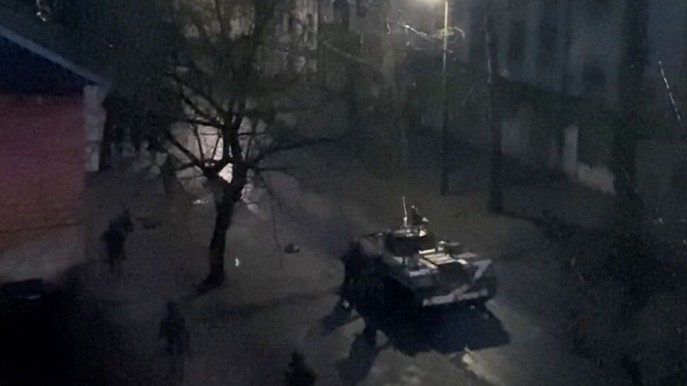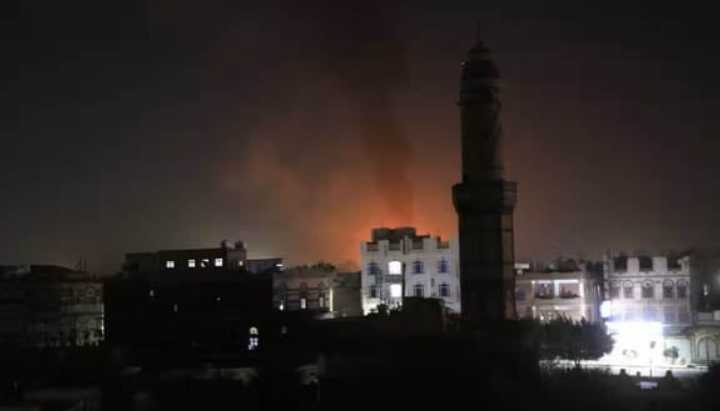Oleh, the commander of a Ukrainian mechanized infantry unit dug into
trenches west of Kherson, is confident his Russian foes will be forced to
abandon the strategic port by winter weather, logistical logjams and the threat
of encirclement.
But neither he nor his men think
the Russians will go quickly or quietly and nor do they intend to let them.
His comments raise the spectre of
a bloody slog in the coming weeks for control of a key city on the west bank of
the Dnipro River which acts as a gateway to the peninsula of Crimea annexed by
Russia in 2014.
"They will keep fighting.
They will defend their positions as long as they have the ability to do
so," said Oleh, 26, a battle-hardened major who has risen through the
ranks since enlisting as a teenager 10 years ago. "It will be a hard
fight."
Kirill Stremousov, deputy head of
the Russian-installed administration in Kherson region, said on Thursday that
he hoped Russian forces would put up a fight.
"If we leave Kherson, it
will be a huge blow," he added, in comments broadcast by Russia's RT
television.
The contest for the only
provincial capital seized by Moscow in the full-scale invasion launched on 24
Feb may be one of the most consequential of the war so far.
For Russian President Vladimir
Putin, it would be another setback following a series of significant
battlefield losses since mid-August.
With control of the Dnipro's west
bank, military experts said, Ukrainian forces would have a springboard from
which to seize a bridgehead on the east side for an advance on Crimea.
Crimea is home to Russia's Black
Sea fleet and Kyiv has made the peninsula's recovery its sworn goal.
Were Kherson to fall in the
counter-offensive, the experts added, it would also be a political humiliation
for Putin, as Kherson is one of four partially occupied regions of Ukraine that
he announced would be part of Russia "forever" with great fanfare on
30 Sept.
"It would be a massive blow,
primarily politically," said Philip Ingram, a retired senior British
military intelligence officer. "And it would cost him (Putin) militarily.
If the Ukrainians were able to get a bridgehead on the east side of the Dnipro,
that would be even worse for the Russians."
The Ukrainians "will be able
to hammer the Russians defending the approaches to Crimea," said retired
US General Ben Hodges, a former commander of US Army forces in Europe.
A US official, speaking on
condition of anonymity, said it appeared the Russians already had begun
"an organized, phased withdrawal" from the Dnipro's west bank.
ITCHING TO ATTACK
Thousands of civilians from the
city and surrounding areas have been evacuated to the east side of the Dnipro
in recent weeks after Russian-appointed occupation authorities warned of the
dangers posed by Ukrainian advances.
On Friday, Putin publicly endorsed
the evacuation that Kyiv says has included forced deportations of civilians out
of Russian-occupied territory - a war crime - which Russia denies.
Occupation authorities also have
relocated administrative offices and records to the east bank, and a Western
source, speaking on condition of anonymity, said most Russian commanders had
transferred their bases as well.
The US official and Ukrainian
commanders said the Russians had been reinforcing their front lines, including
deploying recently mobilized reservists, in a bid to better protect the
withdrawal.
Some Ukrainian soldiers believe
the poorly trained Russian reservists are being sent forward "like lambs
to the slaughter", while more experienced troops are digging into
defensive lines further back, according to the US official.
An orderly pullout could prove
challenging for the Russians, requiring coordination, deception to conceal
movements, communications discipline, and intense artillery barrages to
suppress Ukrainian advances.
But Ukrainian troops could also
face serious obstacles that could stall their takeover of Kherson, including
booby traps and concentrated Russian artillery and rocket fire from the east
bank, Hodges said.
As the sides on Friday fought
intermittent artillery duels, Oleh's 100-man unit took advantage of unusually
mild weather to clean weapons and install floorboards in earth-and-log-covered
bunkers that are lined with thermal insulation and feature portable generators
and wood-burning stoves.
The unit, with six armoured
personnel carriers, took its positions in September after Ukrainian forces
drove Russian troops back to Kherson's border with Mykolaiv province.
Oleh said the Russians were
running short of time, as January would bring ice floes down the Dnipro that
could block ferry operations.
He was impatient to strike the
enemy's weak points to induce panic among reservists that could turn into a
rout.
"If we don't start an
attack, they will just keep sitting there," he said. "The mobilized
ones are good for us because they generate panic. Panic is infectious like a
disease. It spreads."
- Reuters








